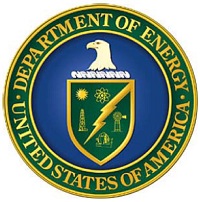 Three groups researching algae-based biofuels will get a big boost from $24 million in funding from the U.S. Department of Energy.
Three groups researching algae-based biofuels will get a big boost from $24 million in funding from the U.S. Department of Energy.
Biofuels Digest reports that Assistant Secretary for Energy Efficiency and Renewable Energy Cathy Zoi made the announcemet at this week’s BIO World Congress on Industrial Biotechnology and Bioprocessing in Washington, DC:
According to Zoi, the selections will support the development of a clean, sustainable transportation sector – a goal of the Department’s continued effort to spur the creation of the domestic bio-industry while creating jobs.
At the same time, Zoi announced the release of the final version of the National Algal Biofuels Technology Roadmap, a draft of which was released last June, based on workshop results from a meeting in DC that attracted 200 stakeholders. The final report reflects the substantive comments received during the public comment phase and, according to the DOE, “is intended to guide future work and investments in algal biofuels.”
The three consortia selected for funding are:
Sustainable Algal Biofuels Consortium (Mesa, AZ)
Led by Arizona State University, this consortium will focus on testing the acceptability of algal biofuels as replacements for petroleum-based fuels. Tasks include investigating biochemical conversion of algae to fuels and products, and analyzing physical chemistry properties of algal fuels and fuel intermediates. (DOE share: up to $6 million)
Consortium for Algal Biofuels Commercialization (San Diego, CA)
Led by the University of California, San Diego, this consortium will concentrate on developing algae as a robust biofuels feedstock. Tasks include investigating new approaches for algal crop protection, algal nutrient utilization and recycling, and developing genetic tools. (DOE funding: up to $9 million)
Cellana, LLC Consortium (Kailua-Kona, HI)
Led by Cellana, LLC, this consortium will examine large-scale production of fuels and feed from microalgae grown in seawater. Tasks include integrating new algal harvesting technologies with pilot-scale cultivation test beds, and developing marine microalgae as animal feed for the aquaculture industry. (DOE funding: up to $9 million)
The article goes on the say the projects will take place over three-year periods.

